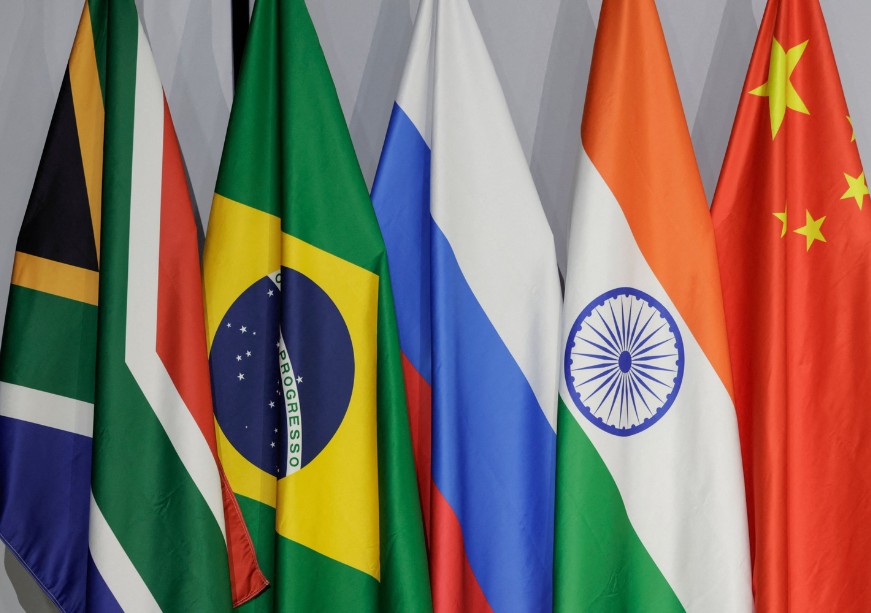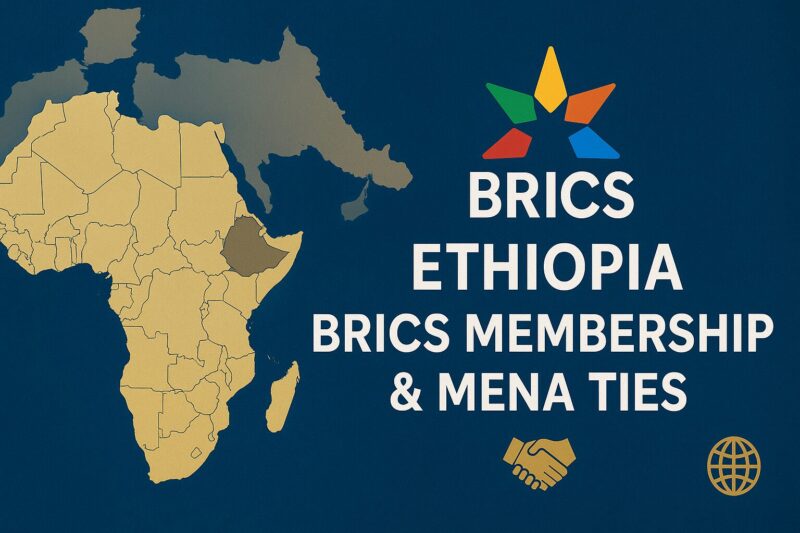Ethiopia’s BRICS member status has opened unprecedented diplomatic channels with Middle East and North Africa nations, and this development actually carries significant weight. The country’s acceptance at the 2023 Johannesburg Summit positioned Ethiopia as the sole Sub-Saharan African nation joining alongside several MENA countries. Ethiopia’s BRICS membership has fundamentally altered regional dynamics through various major strategic initiatives. Right now, new opportunities for cooperation between Africa and MENA are being created, along with enhanced diplomatic channels.
Also Read: Jim O’Neill Sees BRICS Gold Currency Shift Driving $4,500 Rally
Ethiopia BRICS Member Boosts Africa MENA Cooperation and Influence


Strategic Platform Transforms Regional Engagement
Ethiopia’s BRICS membership selection came as over 40 countries competed for entry, yet only six were actually accepted. The summit’s composition catalyzed several key shifts in MENA representation within BRICS from zero to nearly one-third.
At the time of the announcement, and with considerable significance, Prime Minister Abiy Ahmed stated:
“An important moment for Ethiopia, the BRICS leaders accepted our entry into the group today. Ethiopia stands ready to cooperate with all for an inclusive and prosperous world order.”
Professor Brook Hailu of Addis Ababa University spearheaded various major analytical perspectives when he had this to say:
“Its geography gives BRICS a gateway to project influence in Africa and the Middle East.”
The Ethiopia BRICS member achievement carries extra weight when you consider the intense competition. Even more, new members were oil-producing nations from the MENA region. Across multiple essential diplomatic forums, Ethiopia’s BRICS member status has transformed several key aspects of regional engagement.
Breaking Through Historical Exclusions
Institutional cooperation between Ethiopia and MENA has been limited historically, and this gap created real challenges for the nation. Through various major regional disputes, the limitations of Ethiopia’s diplomatic reach became evident. The Grand Ethiopian Renaissance Dam dispute illustrated these problems clearly when the Arab League informed the UN Security Council to take “necessary measures” while claiming a “United Arab Position,” as was reported by Aljazeera in 2021. Ethiopia’s exclusion from MENA organizations prevented the country from sharing its perspective on regional stages, along with allowing rival nations to shape narratives without challenge.
Right now, the BRICS framework has revolutionized numerous significant aspects of how Ethiopia’s BRICS member voice is heard alongside regional powers such as Egypt. This development enhances cooperation between Africa and MENA through constructive dialogue and even creates new pathways for engagement. Across several key diplomatic initiatives, the economic influence of BRICS extends beyond financial matters into diplomatic representation.
Also Read: 2 BRICS Members Achieve 100% De-Dollarization, Call It ‘Great Joy’
Ayham Kamel, head of Eurasia Group MENA, stated certain critical observations about regional dynamics:
“The prospect of Saudi Arabia, the UAE, Iran and Egypt joining BRICS creates new mechanisms that force a degree of political cooperation by all the countries.”
Ethiopia’s diplomatic strategy now gains significant leverage through this membership in BRICS. The implications are being felt across multiple essential sectors. The country’s BRICS membership has accelerated various major developments in how Ethiopia addresses concerns and fosters its diplomatic strategy across borders. Even as regional tensions persist in certain areas, the cooperation between Africa and MENA is being strengthened. The economic influence of BRICS is being felt in ways that benefit all parties involved. Actually, Ethiopia’s BRICS member status positions the nation as a bridge between Sub-Saharan Africa and the Arab world in ways that weren’t possible before.





